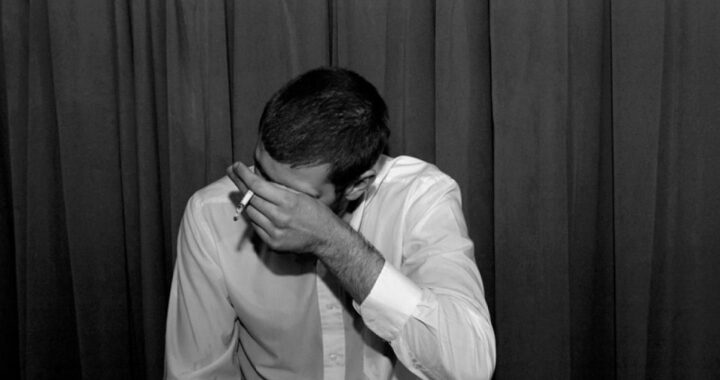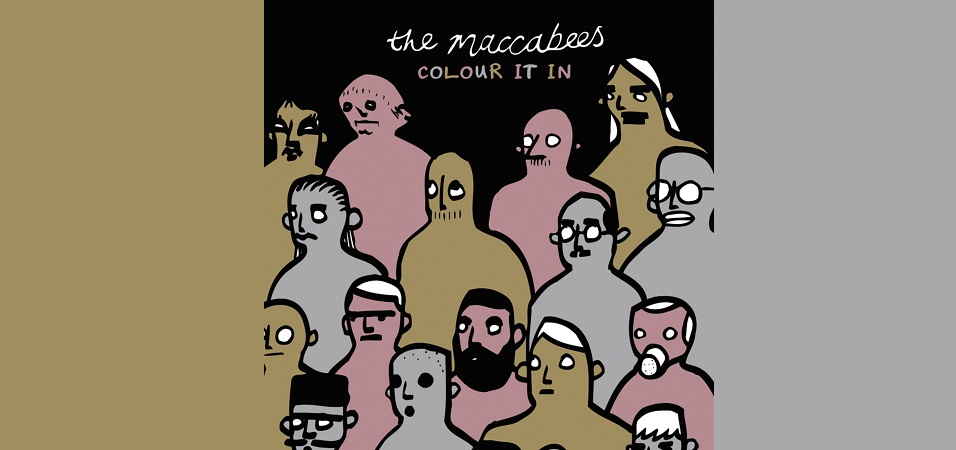Record Rewind: The Knife – Silent Shout
5 min read
A few times every decade, there comes along a totally unexpected album that redefines a genre. These albums are undeniably innovative, spinning their genre in a totally new direction, and the music industry follows them for years to come. Silent Shout is one such album, having seemingly come from nowhere in 2006, and its influence can still very much be felt today. The Knife’s masterful third album morphed electropop from something fun and lighthearted into something dark and intimate, and pop music hasn’t looked the same since.
 Deep Cuts, The Knife’s second album, and Silent Shout‘s immediate predecessor is a very strong record, and it’s easy to see how it laid the groundwork for the later album. Whilst the album has a very different sound, with many tropical flourishes enlivening a fairly simple dance-pop soundscape, it has a real emotional grit which the Swedish duo would expand upon in their later work. Their breakout song Heartbeats sees vocalist Karin Andersson singing wistfully of a lost love, but she colours the track with visceral imagery like “and you, you knew the hand of the devil / and you, kept us awake with wolves teeth”. This style of graphic description (“teeth” come up a lot in her lyrics) would become the band’s calling card, and was one they’d double down on in Silent Shout.
Deep Cuts, The Knife’s second album, and Silent Shout‘s immediate predecessor is a very strong record, and it’s easy to see how it laid the groundwork for the later album. Whilst the album has a very different sound, with many tropical flourishes enlivening a fairly simple dance-pop soundscape, it has a real emotional grit which the Swedish duo would expand upon in their later work. Their breakout song Heartbeats sees vocalist Karin Andersson singing wistfully of a lost love, but she colours the track with visceral imagery like “and you, you knew the hand of the devil / and you, kept us awake with wolves teeth”. This style of graphic description (“teeth” come up a lot in her lyrics) would become the band’s calling card, and was one they’d double down on in Silent Shout.
The changes in Silent Shout are apparent from the opening seconds of the album. On the first song, the title track, the 80’s style drums of Deep Cuts are completely gone, replaced by a bass kick that sounds small and intimate, like a human heartbeat, but also booming and menacing, and cymbals made of digital static. Instead of glittering major key keyboards, there’s a simple trance arpeggio, built from an unaffected analogue synth. It sounds distinctly cold, letting on no emotions besides distance.
Even after this radically changed instrumental style has been unveiled, the most shocking change is yet to come. When Andersson begins to sing, she sounds inhuman. Her voiced has been pitched down roughly an octave, giving her usually emotional tones a lifeless, robotic quality. She sings of being unable to express herself – “wish I could speak in just one sweep / what you are and what you mean to me” – and when combined with the affected vocal performance, what should sound sad instead sounds menacing and distinctly creepy. Yet, because of the emotional wall this puts between Andersson and the listener, the moments when she’s more open with her feelings become all the more powerful.
On Marble House, her vocals are used very effectively. Between a throbbing beat, and an ever-changing panorama of different synth sounds, Andersson’s voice constantly changes tone, switching from her natural pitch in the first verse, to an eerie multi-tracked choir in the chorus, to a particularly unsettling, slightly-too low pitch in the second verse. Said verse opens with the lines “you close my eyes and soothe my ears / you heal my wounds and dry my tears”, and the tone makes what at first appears to be a loving relationship sound twisted and broken. She doesn’t need to spell out the unease and dread she feels about her lover, because the sound does it for her.
One other major change in Silent Shout that would go on to be expanded in the duo’s later work, is the more political nature of the lyrics. Standout track We Share Our Mothers’ Health engages with topics like capitalistic greed, but filters it through the most dancefloor-friendly song on the album. Andersson sings about cultures rolling over others – “we came down from the north / blue hands and a torch / red wine and food for free” – and the pounding beat and synths makes consumerism sound like a war machine. Once again, they use vocal effects perfectly in this track, particularly in the haunting chorus. With an effect that makes Andersson’s voice sound distinctly male, and positively demonic, she sings “say you like it / say you need it / when you don’t”. It becomes a twisted mantra the duo would rail against in their later work, but on We Share Our Mother’s Health they have submerged themselves in capitalism’s decadent spirit. On an album so full of coldness and loneliness, it’s telling that the one track that sounds truly raucous and alive is so full of fire and hate.
As far as the album’s legacy goes, it isn’t hard to see which modern groups have taken inspiration from it. Some of the best synthpop albums of this decade draw directly from Silent Shout‘s well. The most obvious group is CHVRCHES, seeing as they’ve made their inspiration almost explicit by naming their breakout hit The Mother We Share. Their sound combines the icy synths of the noisier tracks from Silent Shout with more modern production tics, like their trademark vocal chops. However, that group’s vocalist, Lauren Mayberry has a much more open vocal style, even if her unique timbre does lend itself to a certain steeliness.
Perhaps the artist to best emulate the spirit of Silent Shout is Grimes. Grimes’ breakout album Visions sounds very similar to Silent Shout in terms of the instruments used. Like The Knife, Clair Boucher largely uses brittle drums and analogue synth bleeps to create a lonely atmosphere, but instead of the booming, industrial sound of Silent Shout, Boucher’s music sounds small and personal. Her vocals are heavily processed, like Andersson’s, deliberately obfuscating the lyrics of her songs, so that when the listener figures out the meaning of any given track, the revelations are that much more affecting.
Silent Shout is one of the most important pop albums ever made, which just makes how intentionally difficult it is all the more striking. From its opening notes, the duo do everything they can to scare the listener, and create an atmosphere of icy dread. Whilst it’s punctuated by a few tracks of vengeful anger, the majority of the album deals with isolation and fear. The band’s most recent album, Shaking the Habitual dove straight into dealing with politics over an even more difficult, alienating soundscape, marking Silent Shout as their perfect middle ground. It’s grim, cold, and dejected music, but the hooks are still undeniably catchy, and for lack of a better term, the beat bang. Silent Shout remains to this day the quintessential electropop album, and it’s unlikely to be toppled from its perch anytime soon.


